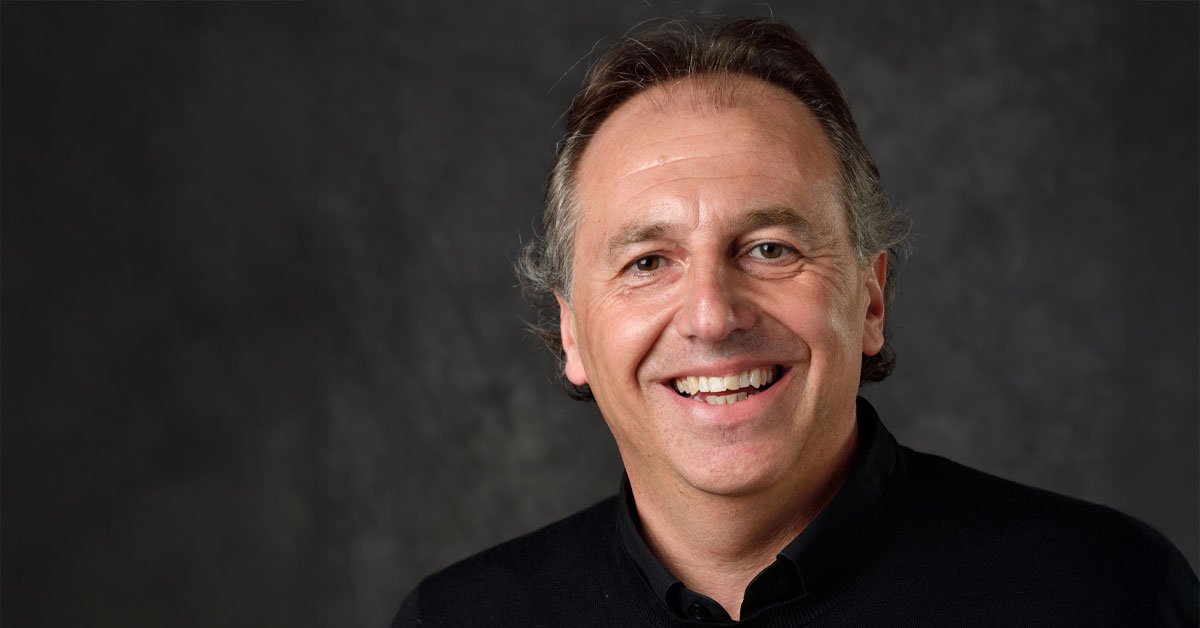MSU Professor Helps Global Companies Track Environmental Impact One Square Meter at a Time
Built on MSU technology, Bruno Basso’s company CIBO Technologies helps global brands turn agricultural data into measurable environmental outcomes.
Bruno Basso, founder of CIBO Technologies and MSU’s John A. Hannah Distinguished Professor (courtesy photo).
EAST LANSING, Mich. (Apr. 28, 2025) — In an era when companies face mounting pressure to quantify their environmental footprint, the most transformative innovations aren’t generating new data—they’re translating existing data into meaningful metrics.
That’s exactly what Professor Bruno Basso is doing.
From a teenage summer intern in the Michigan State University cornfields to the founder of a climate-tech company backed by Al Gore’s investment fund, Basso’s journey is as grounded in science as it is in soil. Today, his company, CIBO Technologies, helps some of the world’s largest food producers and financial institutions measure the environmental impact of agriculture—often for the first time.
And it all started with a drone.
“About 14 years ago, I was on the front page of the Lansing State Journal,” Basso recalls. “The headline was ‘MSU Lends the First Drone.’” At the time, using drones in agriculture was virtually unheard of. Today, that early bet on remote sensing and spatial modeling is at the heart of CIBO’s platform.
Quantifying the Invisible
A professor in MSU’s Department of Earth and Environmental Sciences and the university’s John A. Hannah Distinguished Professor, Basso has spent decades building models that simulate crop growth, soil health, water use, and greenhouse gas emissions. But what sets his work apart is scale.
Using remote sensing and AI-assisted imagery, Basso’s models can simulate how each square meter of farmland responds to soil type, slope, and weather—turning complex biological systems into actionable environmental metrics.
“It’s like creating a digital twin of the field,” he explains. “We can model what happens if you change fertilizer use, adopt no-till practices, or plant cover crops. Then we quantify the actual impact.”
Those insights power CIBO’s business-to-business platform, which is used by companies like Nestlé, Rabobank, and Land O’Lakes to monitor emissions, track regenerative practices, and calculate soil carbon gains across their supply chains.
Meeting the Moment
CIBO’s model—developed at MSU and now registered with international standards body VERRA—couldn’t be more timely. With new environmental regulations taking effect in both the U.S. and Europe, companies are under pressure to report Scope 3 emissions—indirect emissions that occur throughout a company’s value chain.
That’s where CIBO shines.
“Scope 3 is the hardest to measure,” Basso says. “But with our platform, you can get field-level estimates tied to real biophysical processes—not just averages or assumptions.”
It’s a rare combination: academic rigor, regulatory alignment, and commercial traction.
A Global Problem with Local Roots
Basso co-founded CIBO in partnership with Flagship Pioneering—the same venture firm behind Moderna. Today, he serves as Chief Scientist, guiding a growing team of modelers, coders, and data scientists.
“I still meet with the programming team regularly,” he says. “I’ve even pitched the science to Al Gore.”
Despite national recognition and a growing list of corporate partners, CIBO remains rooted in the Midwest. “Lansing has its challenges,” Basso admits, “but it also has a great quality of life. We just need to keep investing in talent and infrastructure.”
Agriculture’s Role in Environmental Solutions
For Basso, agriculture is both the challenge and the opportunity. “It’s inherently a leaky system,” he says. “But farmers are often the first to feel the effects of climate change—and the first to adapt.”
With climate-smart programs gaining traction across the country—including a new agricultural resilience initiative in Michigan—Basso sees a future where science, policy, and business align to make sustainable agriculture not just viable, but profitable.
“The science is ready,” he says. “Now it’s about building the momentum.”
###
This article is based on an interview with Bruno Basso, Co-Founder and Chief Scientist of CIBO Technologies, on the MSU Research Foundation Podcast. You can listen to the full conversation on Apple Podcasts or Spotify.

